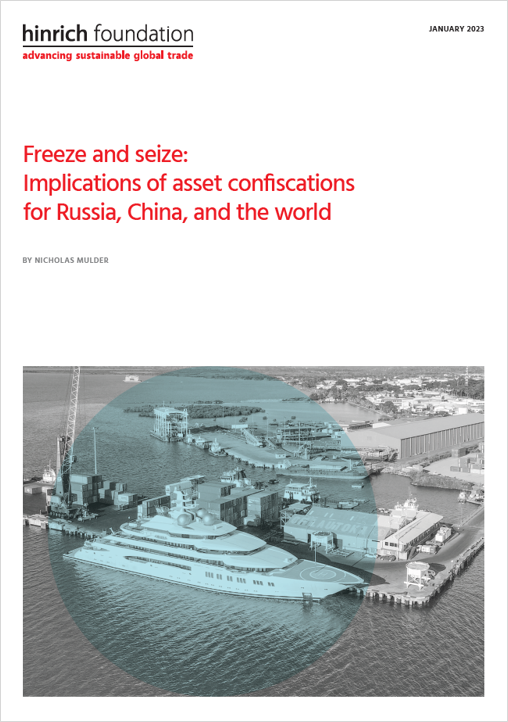Trade and geopolitics
Freeze and seize: Implications of asset confiscations for Russia, China, and the world
Published 10 January 2023
The Russian invasion of Ukraine has elevated the global significance of multi-country asset seizures. If the freezing implemented against Russia is implemented on a larger economic target such as China, then losses to all sides would be even larger due to the size and integration of East Asian capital pools.
The last 40 years of globalization have created large webs of cross-border trade, investment, and overseas asset accumulation. This has made foreign-owned property a target of restrictive measures in wars, international disputes, and geopolitical crises. During this period the main asset freezer has been the United States, whose dollar-based financial system holds the reserve assets of many central banks and private individuals around the world.
In recent years, asset seizures undertaken by several countries at once have become more common. In the ongoing sanctions campaign to pressure Russia to end its war against Ukraine, asset seizures and freezing have developed into a prominent feature – and China is taking note. In a climate of rising geopolitical instability, the practice of seizing assets on a large scale raises serious questions about the risks it poses for international investments.
This report by Nicholas Mulder of Cornell University examines the historical precedents of asset freezing, surveys the campaign against Russian private assets around the world so far, and maps the implications for Asian economies whose public and private overseas asset holdings are among the largest in the world.
© The Hinrich Foundation. See our website Terms and conditions for our copyright and reprint policy. All statements of fact and the views, conclusions and recommendations expressed in this publication are the sole responsibility of the author(s).





